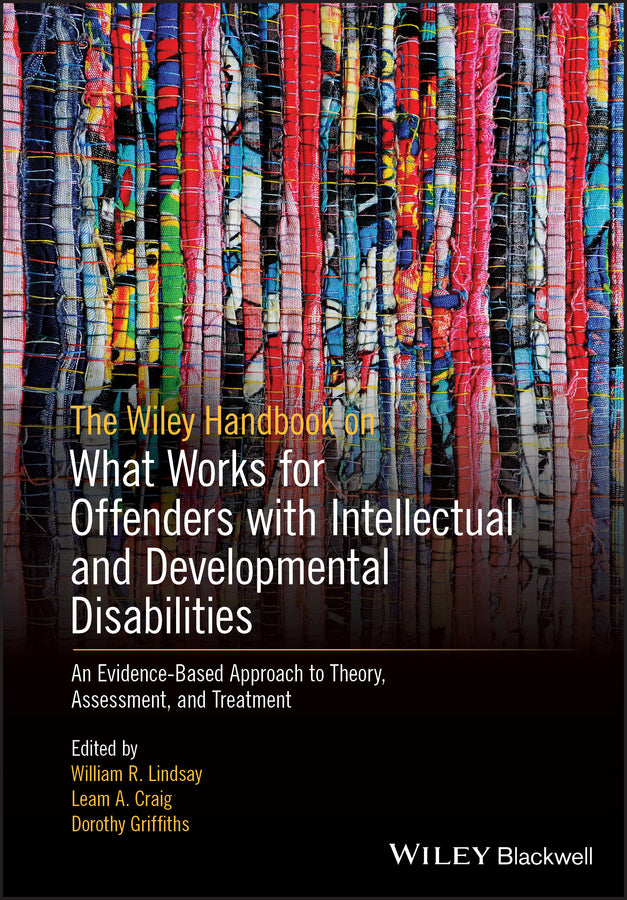Description
Condition: BRAND NEW
ISBN: 9781119316237
Year: 2019
Publisher: John Wiley & Sons (UK)
Pages: 472
Description:
Brings together the growing amount of evidence on the assessment and treatment of offenders with intellectual and developmental disabilities.
Written by a team of international experts, this comprehensive and informative book provides a contemporary picture of evidence-based practice for offenders with intellectual and developmental disabilities. By adopting a scientist-practitioner position directed at an academic level with practitioner guidelines, it provides a valuable reference source for professionals from allied disciplines who are using or seeking to apply research for this client group.
The Wiley Handbook of What Works for Offenders with Intellectual and Developmental Disabilities: An Evidence Based Approach to Theory, Assessment and Treatment is divided into five sections: Introduction, Phenotypes & Genotypes and Offending Behavior, Validated Assessments, Treatment, and Conclusions. The Introduction offers an overview of the entire book and is followed by a second overview covering the ethics of evidence-based practice. After that come chapters on protecting the rights of people with intellectual disabilities in correctional settings, and behavioral and cognitive phenotypes in genetic disorders associated with offending. The third part of the book studies the assessment of individuals with anger and violence issues, inappropriate sexual behavior, alcohol abuse, and emotional difficulties. Next comes a section that looks how to offenders can be treated. The final section discusses future directions and requirements for offenders with intellectual and developmental disabilities.
<
ISBN: 9781119316237
Year: 2019
Publisher: John Wiley & Sons (UK)
Pages: 472
Description:
Brings together the growing amount of evidence on the assessment and treatment of offenders with intellectual and developmental disabilities.
Written by a team of international experts, this comprehensive and informative book provides a contemporary picture of evidence-based practice for offenders with intellectual and developmental disabilities. By adopting a scientist-practitioner position directed at an academic level with practitioner guidelines, it provides a valuable reference source for professionals from allied disciplines who are using or seeking to apply research for this client group.
The Wiley Handbook of What Works for Offenders with Intellectual and Developmental Disabilities: An Evidence Based Approach to Theory, Assessment and Treatment is divided into five sections: Introduction, Phenotypes & Genotypes and Offending Behavior, Validated Assessments, Treatment, and Conclusions. The Introduction offers an overview of the entire book and is followed by a second overview covering the ethics of evidence-based practice. After that come chapters on protecting the rights of people with intellectual disabilities in correctional settings, and behavioral and cognitive phenotypes in genetic disorders associated with offending. The third part of the book studies the assessment of individuals with anger and violence issues, inappropriate sexual behavior, alcohol abuse, and emotional difficulties. Next comes a section that looks how to offenders can be treated. The final section discusses future directions and requirements for offenders with intellectual and developmental disabilities.
<

